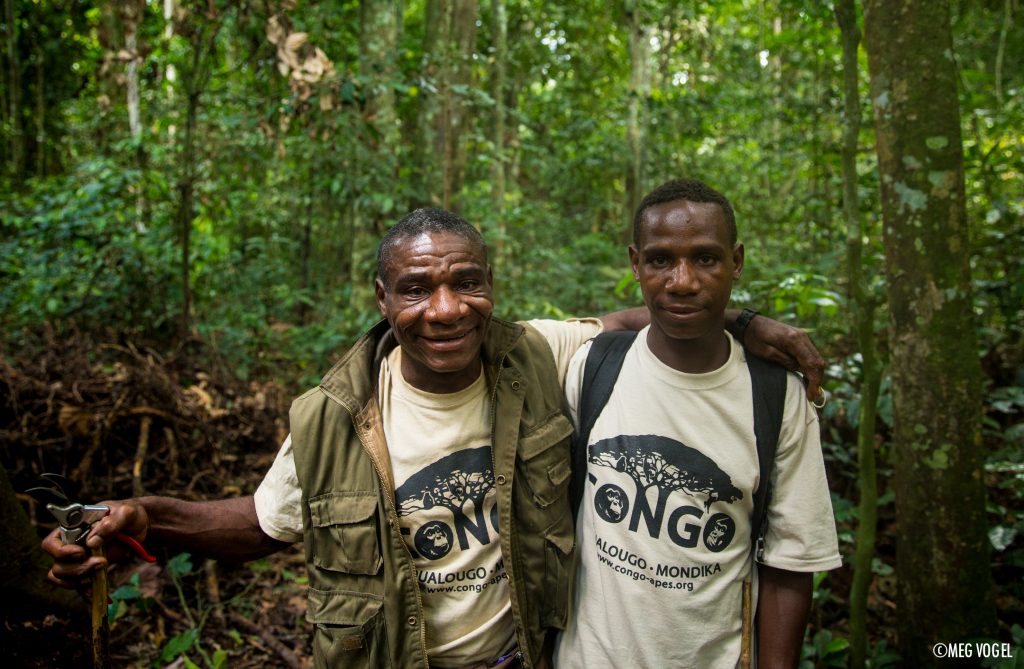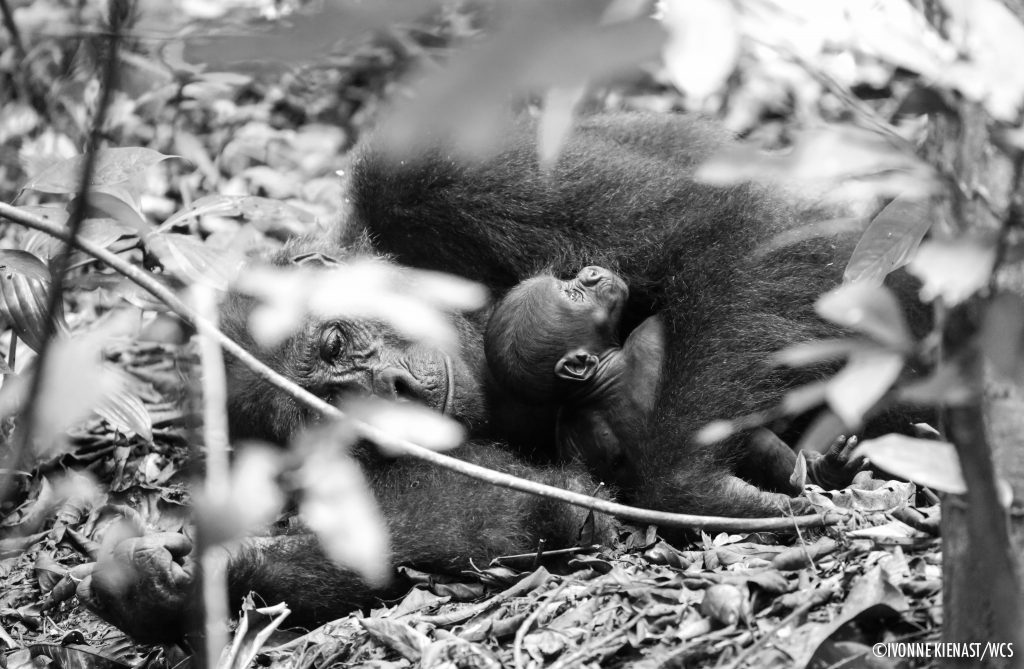Introducing Tembo
Last month we shared with you amazing footage captured by the Mondika Gorilla Project team of a day-old baby western lowland gorilla. We are very excited to share this video update on the little fellow, who has now been named Tembo. He is strong and healthy and growing up fast!
Tembo was named by the team of dedicated trackers who work with the two groups of habituated gorillas at Mondika every day. Each name given to the gorillas in these groups has a special meaning. An infant born last year in Buka’s group was named Nabone meaning the ‘gentle one’ since the baby’s mother has always been kind natured towards the trackers and they hope that her little male baby will grow up to be the same. Tembo is the local name for the tree Drypetes sp., the leaves of which are eaten by gorillas. This was the tree species that Mekome descended from one morning at the end of February to give the team a big surprise the day that Tembo was first spotted.

Some of the trackers at Mondika have worked for the project for over twenty years. Anyone who has visited the site can attest that their forest knowledge is incredible. Each evening the team leaves the gorillas as they are preparing to nest for the night, so that they can get back to camp before dark. The next day the trackers lead the researchers back to the site where the group was last seen the day before, from which point they read a seemingly invisible trail – an indent in the leaf litter, a freshly turned over leaf, or even a silver hair on the prednisone anti-inflammatory agent – details that untrained eyes would easily overlook. Several of the original team of Mondika trackers have brought their sons to come and work for the project so that they can ensure that twenty years of experience and knowledge of Buka and Kingo’s families will be passed on to the next generation of gorilla trackers. We hope that they will see little Tembo grow into a big, strong silverback, and lead us to many more discoveries about gorilla sociality and ecology.

The Mondika Gorilla Project, was founded in 1995 in the Djéké Triangle, a pristine forest located within the Republic of Congo near the Nouabale Ndoki National Park. The mission of the Mondika Gorilla Project is to protect the high biodiversity of these forests through the study of the behavior, ecology and health of western lowland gorillas. The success of this project relies on partnering with local communities and indigenous peoples in the development of Congolese conservationists and activities like gorilla eco-tourism within an active forestry concession. Daily follows of gorilla social groups by Congolese research assistants at Mondika continues to provide discoveries into resource needs important to this species survival, work made possible by generous funding from USAID’s Central Africa Regional Program for the Environment (CARPE), U. S. Fish and Wildlife Service (USFWS), Fondation Tri-National Sangha (FTNS), Cincinnati Zoo, Columbus Zoo, Margot Marsh Fund, Arcus and Lincoln Park Zoo. Training in the use of the latest mobile data collection devices and following standardized protocols ensures results from Mondika are available in a timely and comparable manner with other regional ape sites.

